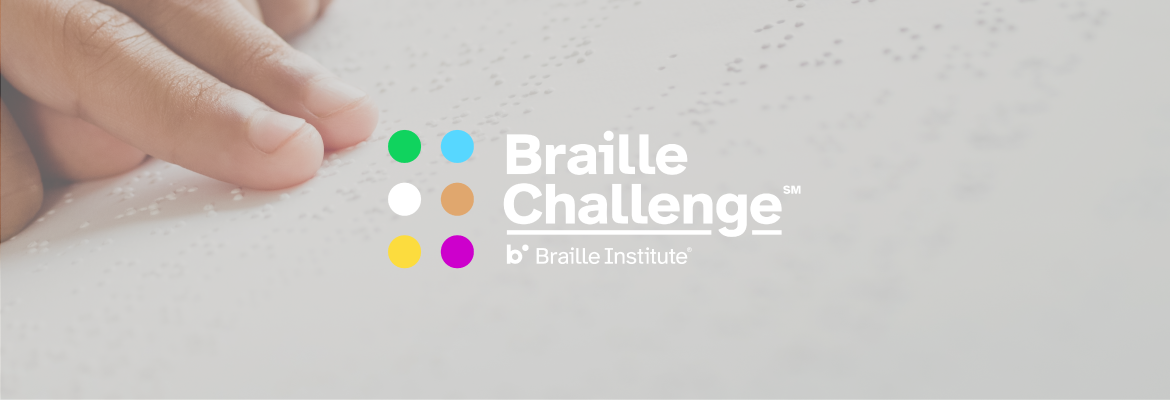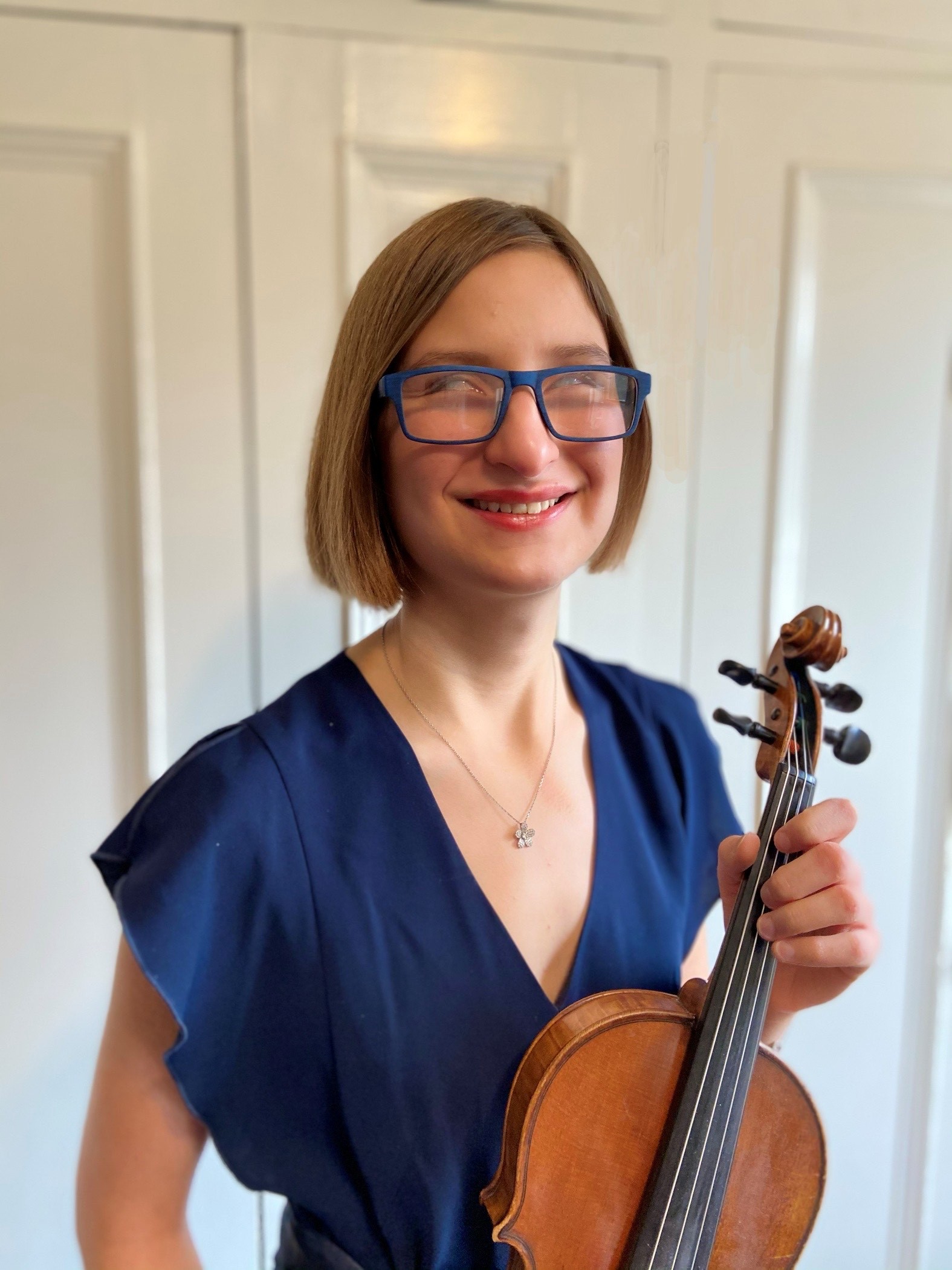
Braille Challenge is a national competition designed to test the braille literacy skills of students in grades 1-12 who are Blind or Low Vision (BLV). For the past decade, MDE-LIO has hosted the Michigan Regional Braille Challenge, giving students an opportunity to showcase their skills, make new friends, and potentially qualify for the national competition.
Many students who competed in Braille Challenge for years have now graduated and are moving into adulthood. MDE-LIO caught up with two former competitors, Julia LaGrand and Sarah Murphree, whose experiences highlight the power of braille literacy and the benefits of participating in this annual challenge.
Harmonizing Music and Advocacy
LaGrand, 20, graduated from high school in 2022. She took a gap year before attending the New England Conservatory of Music in Boston. After her first year, she decided to pursue a dual degree program with Harvard University. She’s not sure what her future will look like, but she would like it to include both violin performance and disability advocacy.

“I love education and speaking to people about disability, and it's really important to me to advocate for things like braille,” she says. “I know that that will be part of my life.”
LaGrand competed in Braille Challenge for all 12 years of school, qualifying for the national competition at Braille Institute each year. She recalls preparing for Braille Challenge as both challenging and rewarding; it made her a faster braille reader, and better at reading charts and graphs.
While braille offers a gateway to reading and writing for many individuals who are BLV, LaGrand says she also likes having a unique tactile connection to what she is reading, whether it’s an email or a novel.
“The tactile connection that braille readers have with their material is one of the most rewarding parts,” she says.
The social benefits of participating in Braille Challenge were also important for LaGrand. She loved having an opportunity to connect with other students at both regional and national levels. Her advice for new competitors? Use Braille Challenge as motivation for building your skills and enjoy the social aspects along the way.
From Learning Braille to Creative Writing
Sarah Murphree, 18, graduated high school in spring 2024 and plans to study creative writing at Cornerstone University. She loves writing, especially historical fiction, and would like to become an editor. Eventually, she would like to write her own books.

Murphree began competing in Braille Challenge when she was in third grade and continued until she graduated in 2024. Her favorite memory is making it to the national finals in 2016, an experience that allowed her to meet other students from across the country who are BLV.
For Murphree, the most challenging part of Braille Challenge was the speed and accuracy segment, especially as she got older. She competed virtually from 2021 to 2024, which allowed her to be more comfortable and relaxed while competing within the time limit.
Murphree says Braille Challenge taught her essential skills such as time management and proofreading, which have been beneficial in her academic endeavors. For students just starting out with Braille Challenge, Murphree had some words of advice.
“I would say to just have fun with it,” she says. “Do your best but remember it’s fun. Think of it positively because it's not like a school test. It's a good challenge to set for yourself every year.”
Upcoming Competition Dates
Know a student who would like to participate in Braille Challenge? The 2025 Michigan Regional Braille Challenge will be held on the following dates:
